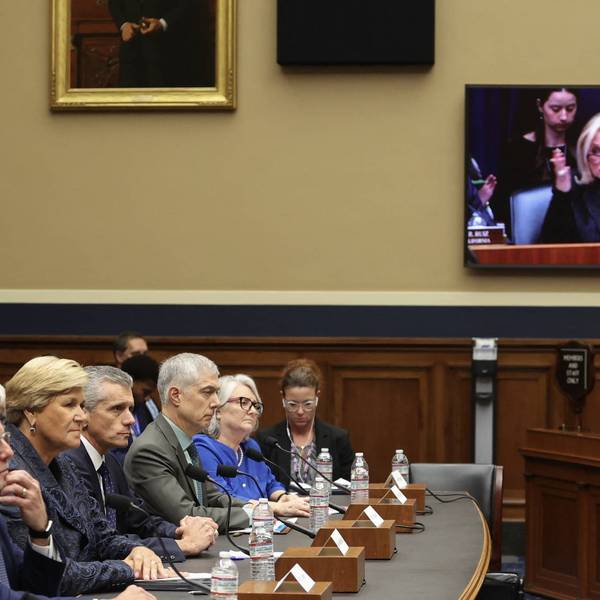It didn't get much attention last week-- the country's obviously preoccupied with the state of the economy and out-of-control oil prices -- but there was a significant development in the growing movement to fix the broken American health care system.
For the first time, the U.S. Conference of Mayors, the high-powered national organization that met here in the summer of 2002 and gathered this year in Miami, adopted a resolution at its annual convention supporting national single-payer health insurance.
The resolution, adopted unanimously by the mayors, specifically calls on Congress to enact H.R. 676, the bill sponsored by Rep. John Conyers of Michigan and 90 other members of Congress including the 2nd District's own Tammy Baldwin.
"This is a major achievement, a qualitative change in the movement for genuine health care reform," said Dr. David Prensky, a member of the Chicago-based Physicians for a National Health Care Program. "It shows that our country's mayors now support the kind of approach that every other industrialized country has -- an approach that guarantees health care for everyone at an affordable cost."
Conyer's bill, which would guarantee everyone care for all medically necessary services much like Medicare does for the nation's senior citizens, realistically isn't going to get very far during this session of Congress. It's becoming clear, though, that the momentum for a universal health care system is growing.
What can finally turn the tide is this fall's national elections.
Voters need to hold candidates' feet to the fire on where they stand on this crucial issue. The time is long past due for our country to rid itself of the embarrassment that 45 million of our citizens have no health care coverage, not to mention the millions more with inadequate coverage that leaves them hopelessly in debt when they get ill.
A single-payer system similar to Medicare is the fairest and most economical way to correct this long-neglected problem. It's free of the costly layers of insurance bureaucracy and easy for people to understand. Nothing is more frustrating than trying to sort out the complicated ifs, ands and buts that mark our current system. Band-Aids have been placed over Band-Aids, saddling our health care system with incomprehensible rules and exceptions that require a law degree to navigate.
Yes, it will cost, just as Medicare costs us on our paychecks now. But the cost will be more than offset by the fact that employers and employees will no longer have to shell out monthly premiums that are threatening to bankrupt even our giant automobile corporations, not to mention the little mom and pop businesses struggling to survive.
The shrill cries of the anti-government crowd are becoming less frequent as Americans come to realize that the government itself couldn't do as poorly as have the private firms that produced our current health care mess.
We're wasting roughly 20 percent of our health care dollars on administrative costs that have nothing to do with treating illnesses. The government's Medicare program, which covers all the nation's seniors, spends about 2 percent on administration.
The nation's mayors have come to see the light. And the nation's voters can make sure that Congress finally sees it too.
Dave Zweifel is editor emeritus of The Capital Times. dzweifel@madison.com
The Capital Times (c) 2008



